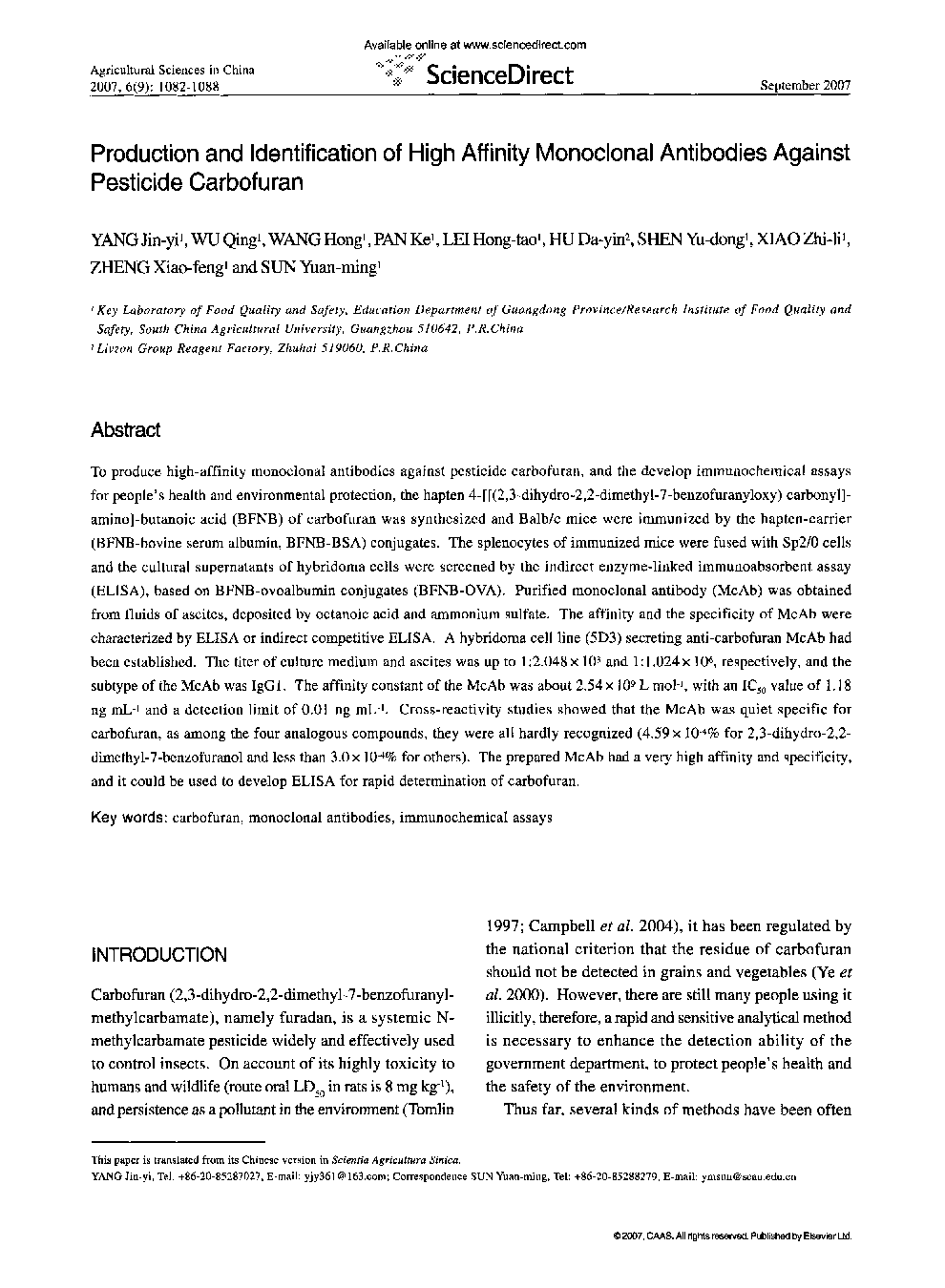| Article ID | Journal | Published Year | Pages | File Type |
|---|---|---|---|---|
| 4490759 | Agricultural Sciences in China | 2007 | 7 Pages |
To produce high-affinity monoclonal antibodies against pesticide carbofuran, and the develop immunochemical assays for people's health and environmental protection, the hapten 4-[[(2,3-dihydro-2,2-dimethyl-7-benzofuranyloxy) carbonyl]-amino]-butanoic acid (BFNB) of carbofuran was synthesized and Balb/c mice were immunized by the hapten-carrier (BFNB-bovine serum albumin, BFNB-BSA) conjugates. The splenocytes of immunized mice were fused with Sp2/0 cells and the cultural supernatants of hybridoma cells were screened by the indirect enzyme-linked immunoabsorbent assay (ELISA), based on BFNB-ovoalbumin conjugates (BFNB-OVA). Purified monoclonal antibody (McAb) was obtained from fluids of ascites, deposited by octanoic acid and ammonium sulfate. The affinity and the specificity of McAb were characterized by ELISA or indirect competitive ELISA. A hybridoma cell line (5D3) secreting anti-carbofuran McAb had been established. The titer of culture medium and ascites was up to 1:2.048 × 103 and 1:1.024 × 106, respectively, and the subtype of the McAb was IgG1. The affinity constant of the McAb was about 2.54 × 109 L mol−1, with an IC50 value of 1.18 ng mL−1 and a detection limit of 0.01 ng mL−1. Cross-reactivity studies showed that the McAb was quiet specific for carbofuran, as among the four analogous compounds, they were all hardly recognized (4.59 × 10−4% for 2,3-dihydro-2,2-dimethyl-7-benzofuranol and less than 3.0 × 10−4% for others). The prepared McAb had a very high affinity and specificity, and it could be used to develop ELISA for rapid determination of carbofuran.
